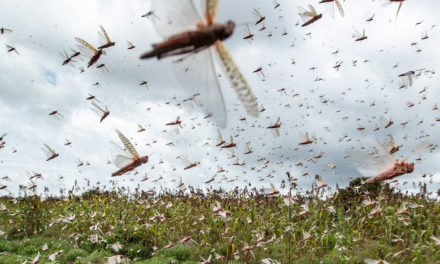Despite being situated in one of the coldest places in the world, Russia’s Siberia province still hasn’t escaped the effects of global warming.
New data from the Copernicus Climate Change Service has revealed that the region witnessed prolonged periods of unusually warm weather with temperatures in May breaking records since observations began in 1979. Data shows that surface temperatures in Siberia were up by 10 degrees Celsius (or 18 degrees Fahrenheit) in May, hotter than its usual average.
Climate scientists have said that this is an “alarming sign” and that warm weather witnessed in May could only happen once in 100,000 years if human-included climate change wasn’t speeding up the process.
Shocking still, Siberia was observing warmer weather even during the winter and spring months. Data reveals that since January, the region has seen warmer-than-average temperatures for several months consecutively.
Russian cities in the Arctic circle have seen drastic changes. In Nizhnyaya, temperatures reached 30 degrees Celsius in early June, while Khatanga – which usually hits 0 degrees Celsius – reached 25 degrees Celsius in late May.
Melting Permafrost
This news comes not long after the Russian President, Vladimir Putin, declared a state of emergency in the Siberian city of Norilsk after an energy company spilled 20,000 tonnes of fuel into a river. This was possibly due to the foundation of the storage tank sinking due to melting permafrost – a layer of soil that remains frozen throughout the year.
“Right now we can assume … that due to abnormally mild summer temperatures recorded in the past years, permafrost could have melted and the pillars under the platform could have sank,” said Sergey Dyachenko, the Nornickel chief operating officer.
Melting permafrost is more evidence on how quickly warming temperatures is reshaping the region. According to data, while global warming can be felt across the world, temperatures are rising twice as fast in the Arctic region.
Russia has witnessed its hottest winter in its 140-year history and many will remember when wildfires overwhelmed the region, devastating 3,000,000 hectares last summer.
- This Artist is Making the Underwater Arena His Canvas - 28th April 2021
- A Video Game that Promotes Peace and Conflict Resolution - 15th March 2021
- Netflix’s ‘Living Undocumented’ is a Difficult Series to Watch, and Exactly Why We Should - 9th March 2021






